21 November
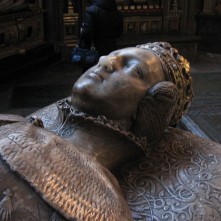
Tomb effigy of Frances Brandon.
1558 – Death of James Bassett, courtier and stepson of Arthur Plantagenet, Viscount Lisle. Bassett was a member of Philip of Spain's Privy Chamber and private Secretary to Mary I. He was buried at Blackfriars, London.
1559 - Frances Brandon, Duchess of Suffolk, died at Richmond. She was buried in St Edmund’s Chapel, Westminster Abbey, on the orders of her cousin, Queen Elizabeth I, and her second husband, Adrian Stokes, erected a tomb in her memory. Frances was the eldest daughter of Charles Brandon, Duke of Suffolk, and his third wife Mary Tudor, Queen of France, sister of Henry VIII, and she was the mother of Lady Jane Grey.
1579 – Death of Sir Thomas Gresham, merchant and founder of the Royal Exchange and Gresham College, at Gresham House in Bishopsgate, London. He was buried at St Helen's Church, Bishopsgate.
1613 – Death of Rose Throckmorton (née Lok), businesswoman and Protestant exile, at the age of eighty-six. Rose was the daughter of Sir William Lok, mercer and Gentleman Usher of the Chamber to Henry VIII, and in her memoirs she claimed that her father had been responsible for supplying Queen Anne Boleyn with religious books from the Continent.
22 November
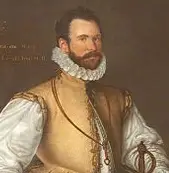
Martin Frobisher
1545 - Henry VIII's trusted physician, Sir William Butts, died at Fulham Manor, Middlesex, after suffering from a “dooble febre quartanz”, a form of malaria. Butts was buried in a tomb against the south wall of All Saints Church, Fulham, but his tomb and brass were later destroyed. In 1627, his epitaph (a slab with verses by Sir John Cheke) was restored by Leonard Butts of Norfolk.
1559 – Proving of the will of Sir Andrew Dudley, second son of Edmund Dudley and brother of John Dudley, Duke of Northumberland. Dudley served Edward VI as a Gentleman of the Privy Chamber, Joint Keeper of the Palace of Westminster, keeper of the king's jewels and robes, and captain of Guînes. In 1553, he was sentenced to death for helping to put Lady Jane Grey on the throne, but was released in April 1555. His date of death is not known.
1594 – Death of Sir Martin Frobisher, naval commander, privateer and explorer, at Plymouth from gangrene. He had been shot in the thigh during hand-to-hand combat during the Siege of Fort Crozon. His entrails were buried at St Andrews, Plymouth, and his body was taken to London and buried at St Giles Cripplegate. Frobisher is known for the three voyages he made to the New World in search of the Northwest Passage, and his service during the Spanish Armada, for which he was knighted. After the Armada, he became one of Elizabeth I's most trusted officers and commanders.
23 November
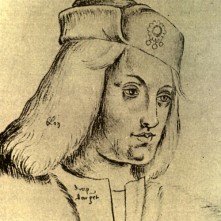
Perkin Warbeck
1499 – The hanging of the pretender Perkin Warbeck at Tyburn. Warbeck had claimed to be one of the Princes in the Tower - Richard of Shrewsbury, Duke of York - and had challenged Henry VII's claim to the throne by raising a rebellion in Cornwall after he was declared Richard IV on Bodmin. The rebellion was squashed and Warbeck was captured and imprisoned.
1503 – Death of Margaret, Duchess of Burgundy (Margaret of York), daughter of Richard, 3rd Duke of York, and sister of Edward IV and Richard III. She died at Mechelen in the Low Countries. Margaret was buried in the house of the Recollects, or the Observant Franciscans.
1558 -The new queen, Elizabeth I, left Hatfield and processed to London.
1583 – Death of Richard Whalley, member of Parliament and administrator, at the age of eighty-four. He was buried at Screveton church in Nottinghamshire. Whalley served Edward Seymour, Protector Somerset, and so was imprisoned after Somerset's fall. He was released after Mary I's accession.
1585 – Death of Thomas Tallis, musician and composer at his home in Greenwich. He was buried in St Alfege's Church, Greenwich, in the chancel. Tallis is known as one of England's greatest early composers, and his works include Gaude gloriosa Dei mater, Puer natus est nobis, Audivi vocem, In pace in idipsum, Videte miraculum, Loquebantur variis linguis and In ieiunio et fletu.
1598 – Execution of Edward Squire, scrivener and sailor. He was hanged, drawn and quartered at Tyburn for treason after being accused of plotting in Seville to poison Elizabeth I and the Earl of Essex.
24 November
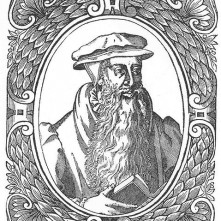
John Knox
1534 – Death of Sir Thomas Wriothesley, herald and father of the Tudor chronicler Charles Wriothesley. It is thought that he was buried at the family church, St Giles Cripplegate, in London.
1542 – The Battle of Solway Moss between England and Scotland. The battle took place on Solway Moss, a moss or peat bog in Cumbria near the Scottish border. The Scottish troops were led by Robert, Lord Maxwell, and the English troops by Sir Thomas Warton. The Scots were forced to surrender after they found themselves trapped between the River Ersk and the moss. Many drowned.
1550 – Burial of Sir James Wilford, soldier and commander at Haddington during the War of the Rough Wooing, at St Bartholomew by the Exchange. Bible translator Miles Coverdale preached at the service.
1572 - Scottish clergyman, famous Reformer and founder of Presbyterianism, John Knox, died at his home in Edinburgh as his wife read aloud from Paul’s First Letter to the Corinthians. He was buried in the cemetery of St Giles’ Cathedral, Edinburgh, where he had served as minister. Knox is known for bringing the Protestant reformation to the church in Scotland.
1559 – Death of Thomas Raynold, Dean of Exeter and nominee for the bishopric of Hereford. Mary I's death and the accession of Elizabeth I put a stop to him being consecrated as bishop, and he died in Marshalsea prison after refusing the “Oath of Supremacy”. He was buried in St Margaret's Church, Westminster.
1587 – Death of Sir William Pelham, soldier and Lord Justice of Ireland, shortly after landing at Flushing in the Netherlands with reinforcements. He had been shot in the stomach in August 1586 at Doesburg while shielding Robert Dudley, Earl of Leicester and his commander in chief, and returned to England in April 1587 to take the waters at Bath. He felt well enough to return to the Netherlands in November 1587, but it was too much for him.
1598 – Death of William Paulet, 3rd Marquis of Winchester, nobleman and author, at Basing in Hampshire. He was buried there. Paulet was made a Knight of the Bath at Mary I’s coronation in 1553, and his offices during the reigns of Mary I and Elizabeth included High Sheriff of Hampshire, Commissioner for Musters, Joint Lord Lieutenant of Hampshire, Lord Lieutenant of Dorset and a commissioner at the trial of Mary, Queen of Scots. He was also the author of the 1586 “The Lord Marques Idlenes”, which was dedicated to Elizabeth I, and was described as “containing manifold matters of acceptable advice; as sage sentences, prudent precepts, morall examples, sweete similitudes, proper comparisons, and other remembrances of speciall choice”.
25 November
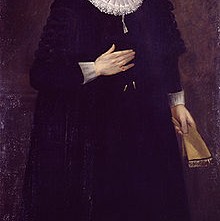
Edward Alleyn
1467 – Birth of Thomas Dacre, 2nd Baron of Gilsland, magnate and soldier, in Cumberland. He was the son of Humphrey Dacre, 1st Baron Dacre, and Mabel (née Parr), great-aunt of Queen Catherine Parr. Dacre eloped with Elizabeth Greystoke, 6th Baroness Greystoke, around 1488, and the couple had seven children. Dacre served under Thomas Howard, Earl of Surrey, at the 1513 Battle of Flodden.
1487 - Coronation of Elizabeth of York, queen consort of Henry VII, at Westminster Abbey - click here for more information.
1545 – Death of Sir Thomas Legh, lawyer, member of Parliament, diplomat and ecclesiastical administrator. He was buried at St Leonard's Church, Shoreditch. Legh served Henry VIII as ambassador to Denmark. He interrogated Bishop John Fisher before his trial in 1535, was a Commissioner in the Visitations of the Monasteries in 1535-36, and examined prisoners involved in the 1536 Pilgrimage of Grace rebellion.
1605 – Death of George Withers, Church of England clergyman and Archdeacon of Colchester, at Danbury in Essex, where he was rector. Withers was the author of the 1579 “Certaine godly instructions, verie necessarie to be learned of the younger sorte before they be admitted to be partakers of the holie communion” and the 1585 “An ABC for Laymen, otherwise called the Laymans Letters”. He also compiled “A view of the marginal notes of the popish testament, translated into English by the English fugitive papists at Rhemes in France”, which he dedicated to Archbishop John Whitgift.
1626 – Death of Edward Alleyn, Elizabethan actor, patron, theatre builder and founder of Dulwich College and Alleyn's School. He was buried in the chapel of Dulwich College.
26 November

Henry Fitzroy
1533 - Henry Fitzroy, the Duke of Richmond and Somerset, married Lady Mary Howard at Hampton Court Palace. Fitzroy was the illegitimate son of Henry VIII by his mistress Elizabeth (Bessie Blount) and Mary was the daughter of Thomas Howard, the 3rd Duke of Norfolk, and the cousin of Anne Boleyn.
1542 (26th or 27th November) – Death of Robert Radcliffe, 1st Earl of Sussex, courtier, soldier and Lord Great Chamberlain of England. He was buried at St Laurence Pountney Church in London, but then moved to Boreham in Essex. Radcliffe was made Lord Great Chamberlain of England for life on 3rd May 1540 for his loyal service to Henry VIII.
1546 – Baptism of Sir Giles Fletcher the Elder, diplomat, member of Parliament and author, in Watford, Hertfordshire. Fletcher was the son of Richard Fletcher, Church of England clergyman, and his wife, Joan. Fletcher is known for his poetical work, “Licia” (1593), but his other works included the Latin pastorals Poemata varii argumenti, the poem De literis antiquae Britanniae and the account of his travels as diplomat, “Of the Russe Common Wealth. Or, Maner of gouernement of the Russe emperour, (commonly called the Emperour of Moskouia) with the manners, and fashions of the people of that countrey”. He was the father of the poet Sir Giles Fletcher the Younger.
1585 – Executions of Hugh Taylor, Catholic priest, and his friend Marmaduke Bowes at York. They were both hanged, and were the first men executed under the 1585 statute which made it treason to be a Jesuit or seminary priest in England, or to harbour such a priest. Both men were beatified in 1987.
1612 – Death of Sir Thomas Walmsley, Judge and Justice of the Common Pleas, at his home at Dunkenhalgh in Lancashire. He was buried at Blackburn.
27 November
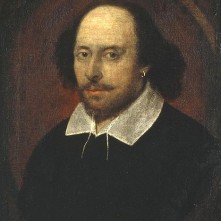
William Shakespeare
1531 (some say 4th December) – Burning of Richard Bayfield, Benedictine monk and reformist, at Smithfield for heresy. Sir Thomas More caught Bayfield importing Lutheran books into England, and he was tried by John Stokesley, Bishop of London, at St Paul's on 10th November 1531, and convicted.
1544 – Death of Sir Edward Baynton, soldier, courtier and Vice-Chamberlain to five of Henry VIII's wives, in France. His cause of death is unknown, but he may have been wounded while serving as a soldier in France. Baynton had arranged to be buried at Bromham, but it appears that he was buried in France.
1556 – Death of Henry Parker, 10th Baron Morley, nobleman, diplomat, translator and father of Jane Boleyn (wife of George Boleyn), at his home, Hallingbury Place, Great Hallingbury, Essex. He was in his late seventies at the time of his death. He was buried at St Giles's Church, Great Hallingbury. Morley grew up in the household of Lady Margaret Beaufort, mother of Henry VII, and although he was a prominent courtier, he is remembered more for his literary translations from Latin and Italian, which he gave to Henry VIII and Mary I as New Year's gifts. His translations include Petrarch's “Trionfi”, the “Life of Thesius” and the “Lyfe of Paulus Emelius”.
1556 (27th or 28th November) – Death of Sir Nicholas Poyntz, soldier, courtier and landowner. Poyntz was a reformer and was visited at his home at Iron Acton, in Gloucestershire, in 1535 by King Henry VIII and Anne Boleyn. He actually built a whole new wing to impress the royal couple.
1575 – Death of Sir Peter Carew, soldier, adventurer and conspirator, at Ross in County Waterford, Ireland. He was buried at Waterford Church, beside the altar. Carew had gone to Ireland in 1568 to lay claim to lands there, and this had put him at loggerheads with the powerful Butler family. Carew had been involved in plotting with the leaders of Wyatt's Rebellion, but had deserted and fled to France in disguise when Mary I's Privy Council got wind of the rebellion.
1582 - The eighteen year-old William Shakespeare married the twenty-six year-old Anne (also known as Agnes) Hathaway, who was pregnant at the time of the ceremony at Temple Grafton near Stratford-upon-Avon in Warwickshire.

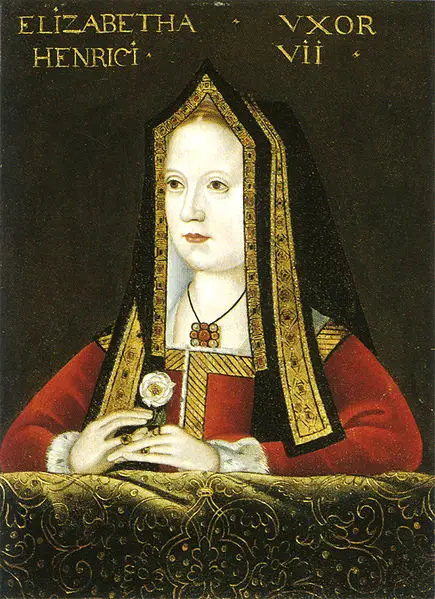
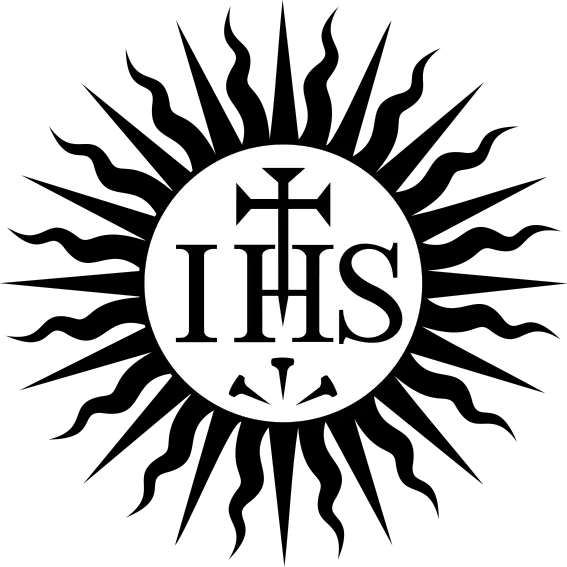
Leave a Reply